Breaking News and Information 2018
- January 1, 2019
- / Dr. Peter Breggin
- / newsflash

Including Links to Stories Mentioned on The Dr. Peter Breggin Hour
on www.PRN.fm Live on Wednesdays at 4 pm New York time.
Dr. Breggin's radio program is archived here.
News 2018
Some psychiatrists have concerned about labelling mental health conditions
Try baking to relieve stress and 9 other alternatives to psychiatric meds
Feeling Depressed? Gut-Brain Dysfunction May be to Blame
|
|
|
Dr. Breggin: The Minds of Men: A Stunning New Film About Covert Mind Control
|
Opioids are killing more children and teens, too, study says
Use of Psychotropic Drugs in Suicide Attempt Linked to Prescribed Access
Study finds antidepressants a risk factor for REM Sleep Behavior Disorder
Antipsychotics Tied to Higher Risk of Death in Children
Video: Mood foods: the link between depression and diet
|
|
Empathic Therapy Training Film - A Psychotherapy Training DVD |
More college students diagnosed with mental illness
Why You Should Make Self-Compassion Your New Year's Resolution in 2019
PTSD drug may increase nightmares, insomnia, suicide risk
Xanax, Valium tied to higher suicide risk in COPD patients With PTSD
|
|
Reclaiming Our Children - A Healing Plan for a Nation in Crisis, by Peter Breggin, MD |
Science-based tips for a better, happier New Year
Does a happy marriage lead to a longer life?
Higher schizophrenia risk scores tied to early-onset emotional problems
Create@State Podcast: Study on Mindfulness
|
Self-Compassion Reduces Negative Mood over Time
The Surprising Role of Childhood Trauma in Athletic Success
A single personality trait is the foundation for almost all mental illness: study
|
|
Medication Madness - The Role of Psychiatric Drugs in Cases of Violence, Suicide and Crime |
The four things that make practically everyone feel loved, according to a new survey
If You Feel Thankful, Write It Down. It's Good For Your Health
Study: Christmas is an accident-prone time of year
The MIND Diet Can Help Ward Off Alzheimer’s While Shrinking Your Waist
Christmas Weight Gain Is Not Inevitable According To New British Study
|
Mindfulness meditation enhances flow state and mental health among baseball players in Taiwan
Ian's thoughts: it's sad that researchers increasingly erase the word 'meditation' from the classical term mindfulness meditation for the practice rooted in Buddhism studied here. This is part of an effort in science to secularize the meditation practices being investigated, which are largely from Eastern religious traditions. Researchers want to wash the practices of 'religious taint'. There is some good sense in doing that, to just extract the objective components of meditation practices that anyone of any faith could utilize for benefits. And it sure seems that doctors can't rightfully prescribe a course of Buddhism. However, by rebranding meditation they're effectively expropriating intellectual products cultivated by careful observations accumulated over centuries under the offices of religion by de facto traditional scientists. Today's secular scientists are not discovering those ancient practices anew, they are merely confirming to their satisfaction that legendary benefits of meditation are importantly real and thus that ancient scientist priests did real science. Workplace-based mindfulness meditation programs reduce stress bio-markers
Scientific American podcast: Mindfulness: The Science Behind the Practice
|
|
|
Why Do We Stay in Unhappy Relationships?
A Nobel Prize-winning psychologist says most people don’t really want to be happy
Cough medicine plus antidepressant caused serotonin syndrome
|
Widow asks Supreme Court to toss GSK's win in lawsuit over Paxil labeling, lawyer's suicide
Data on safety, effectiveness of common acne drug unreliable, some researchers say
The Joy Of Giving Not Just Receiving Is The Key To Lasting Happiness
Don’t Call Your Mom—Video Chat Instead
|
|
Empathic Therapy Training Film - A Psychotherapy Training DVD |
Latest Quarterly Data Records Progress in Reducing Antipsychotics in Nursing Centers
Benzodiazepine Use, Misuse Spike in the US
Feeling Anxious? These 12 Vitamins, Minerals & Herbs May Help
Failure of Timely Stop to Certain Prescription Drugs Is Common
|
Use of Benzodiazepines Up, Despite Scrutiny
How to come off antidepressants
Study: We feel as much love from our pets as a human saying ‘I love you’
The joy of giving lasts longer than the joy of getting
|
How Going On Antidepressants For The First Time Changed My Skin
Study: Illicit use of Ritalin may cause changes in brain
Opioids no more effective for treating chronic pain than over-the-counter options, study finds
|
|
|
Increasing use, and misuse, of benzodiazepines
Spike in number of Australian children put on antipsychotic drugs
Antipsychotics Tied to Higher Unexpected Death Risk in Kids
|
|
|
Editing consciousness: How bereaved people control their thoughts without knowing it
Dalai Lama: Religion is like medicine, one doesn’t suit all
Learning to Meditate: Four Common Questions
|
|
|
Effects of Antidepressants Span Three Generations in Fish
Study Finds Being On Your Phone Constantly Can Be Harmful
The Many Heath and Sleep Benefits Of Music
Johnson & Johnson knew for decades that asbestos lurked in its Baby Powder
|
Study: Meditation effectively treats late-life depression
Teen becomes puppeteer in battle to beat depression
Start-ups use tech to treat mental health issues
How Helping People Affects Your Brain
|
|
Empathic Therapy Training Film - A Psychotherapy Training DVD |
How to discontinue antidepressants
My Fight Against Antidepressants, Part III: Breaking Free
Getting out of the house for cultural activities beats depression in old age
Antipsychotic-induced metabolic alterations
|
The 5 Deadliest Drugs in America Include a Common Anti-Anxiety Prescription
Probiotics could help millions of patients suffering from bipolar disorder
Neonatal Vitamin D Deficiency May Raise Schizophrenia Risk
Treating major depression with yoga: A prospective, randomized, controlled pilot trial
|
Atypical Antipsychotics Heighten Gestational Diabetes Risk
★ Lead author of shocking new Prozac study interviewed
Ian's thoughts: Not even mentioned is what this implies for wild fish which scores of studies report are being exposed to non-trivial amounts of antidepressants from human waste water (see for example Richmond et al, 2018). The report from yesterday (below) has video showing how impaired the prozac-exposed fish were versus the normal exploratory behavior of control fish. This could have negative consequences for survival in the wild. Fentanyl is the deadliest drug in America, CDC confirms
★ Antipsychotic use may increase risk for unexpected death among youth
|
|
|
Screen Time Changes Structure of Kid’s Brains
Researchers found one way that long-term marriages get happier
★ Parents Might Pass Harmful Effects of Prozac on to Future Generations
|
|
|
20% of nursing home residents receive antipsychotics, while only 2% have required diagnosis
Bugs on Drugs - How Pharmaceutical Pollution Spreads up the Food Chain
Five Proven Ways to Increase Our Happiness
Blurred Vision: Bias in taxpayer-funded research
Gardening could be the hobby that helps you live to 100
|
|
|
What These Medical Journals Don’t Reveal: Top Doctors’ Ties to Industry
New documents reveal the truth about CIA’s illegal MKUltra mind-control experiments
Internet Therapy Apps Effectively Reduce Depression, Psychologists Find
|
Childhood Antibiotics Could Raise Risk of Mental Illness, Study Finds
Study highlights correlations between violent death and substance use
Prescription for disaster: New Mexico’s lax psychiatric drug oversight endangers kids
Web-based Cognitive Behavioural Therapy of mild to moderate depression found effective
|
UK: Children treated for addiction to anti-anxiety drugs like Xanax doubles
★ Study: ADHD drug users have 8 to 9X higher chance of Parkinson's-related disorders later in life
Anxiety Can Be a Good Thing—Here’s How I Make Mine Work for Me
|
Too Much Sleep Increases Risk of Death, Cardiovascular Disease
Research shows impact of school start times on teens' sleep
The discrepancy in recommended sleep times in the above two studies is due to youth vs adult recommendations. Teens are recommended to sleep 8 to 10 hours whereas 7 to 9 hours are recommended for adults (see). Why You Should Avoid Social Media After a Failure
This Company Treats "ADHD" With Video Games
|
Study reveals dangerous prescribing practices for Idaho patients on opioids
10 reasons you might be gaining weight that have nothing to do with your diet
A change in marital status affects the number of daily steps
The study states: "In women re-coupling or finding a new partner was associated with decrease in total steps (p=0.010) and being single was associated with increase in non-aerobic steps (p=0.047) during weekdays from 2007 to 2011 compared to women who were married. In men, divorcing was associated with decrease in non-aerobic steps (p=0.049)." How Introverts Can Make it in an Extraverted World
|
Two more blood pressure drugs recalled for potential cancer risk
Cutting social media use to 30 mins per day significantly reduces depression and loneliness
The study concludes: "Our findings strongly suggest that limiting social media use to approximately 30 minutes per day may lead to significant improvement in well-being." Study: Antidepressant foods, an evidence-based nutrient profiling system for depression
|
We feel rubbish about our relationships when compared on Facebook, Instagram
Patients treated worse than animals in Pakistani psychiatric hospitals
New study tracks community dancing therapy on veterans with PTSD
A Massive New Study of 5,000 Men Says One Surprising Thing Predicts Happiness
|
Adopting a pet can help relieve symptoms of depression, study claims
Research Progresses on Mindfulness Based Interventions for Adolescents
|
Antidepressants overtake painkillers among Erie's Medicaid prescriptions
★ Youngest Students in Class More Likely to Be Diagnosed With ADHD
The study is @ Attention Deficit–Hyperactivity Disorder and Month of School Enrollment
|
When You Love Someone More Than They Love You
Family and friends are the bare necessities of life, poll claims
Losing just two hours of sleep makes you angrier
10 productivity tricks from a CEO with ADHD
|
Self-compassion is associated with less stress and depression in women managers
Older drivers taking multiple medications could be at higher risk of accidents
Chronic-pain patients denied legitimate opioid treatment due to epidemic
Listen to Dr. Breggin's interview of pain-treatment activist Richard Lawhern on this important matter. Increased All-Cause Mortality by Antipsychotic Drugs: Updated Review and Meta-Analysis
|
Antidepressant caused the emergence of “superbugs,” Australian scientists claim
Video: Positive drug-free advice on how combat holiday depression
How Skype can help beat depression
Are Emotional Disorders Really Disorders of Love?
|
Autism prevalence now 1 in 40 US kids, study estimates
Study refutes effectiveness of drug combination for treatment-resistant depression
Therapist Empathy Predicts Success in Psychotherapy
The acne drug that can steal young men’s virility
|
UK: Young people are being prescribed dangerous antidepressants
Review finds high level of inappropriate prescriptions for home nursing patients
10 Mood Boosting Foods that Just Happen to be Vegan
Videos on app help patients resist obsessive compulsions
Children with autism languish for years in prison-style cells
★ A petition worth signing: Stop the detention of people with autism & learning disabilities |
Vitamin D can ward off depression this winter
Why Seem Happy When You Can Feel Fulfilled, Balanced And Grateful
Focus on happiness, love and respect
|
Why ADHD was The Greatest Gift I Was Ever Given
ICU stay can lead to depression, says study
How A 60-Second Expression Of Gratitude Can Change Your Life
|
Activists tell mental health conference delegates: ‘You’re helping no-one but yourselves’
Why do more young people have mental health problems?
1 in 8 children and teens in England has a mental health disorder
Could Anticholinergics Be Making Your Fibromyalgia Worse?
|
Children under 10 among those given strong antidepressants in UK
Video: Learn about the forgotten woman whose tireless efforts made Thanksgiving a holiday
Effects of a 12-week running programme in youth and adults with complex mood disorders
|
Did you know? Video chats can fight depression in older adults
Drug used for PTSD may worsen nightmares, not reduce suicidal thoughts
Tobacco increases risk of schizophrenia, psychosis
Gene testing doesn't add much information for antidepressant or antipsychotic prescribing
|
Revealed: How saying thank you can help to ease depression
Yale graduate sues university for removing her over her depression
How to Overcome the Three Myths of Happiness
War between science and religion is far from inevitable
Men and women experience happiness differently – here’s why
|
Parents Say Bullying, ADHD Meds May Have Led to 9-Year-Old Daughter’s Suicide
Opinion : Why millennials are suffering from depression
Preschool sleep problems precede ADHD diagnoses
|
Study: Your Cat's Personality Is Likely To Match Yours
The science behind the health benefits of a daily gratitude practice
Ian's thoughts: The title of that study nicely summarizes the concept of gratitude here: "Counting blessings versus burdens." Learning to see the cup as half full, not half empty. A steady stream of studies posted here show that consciously directed cognitive training (inputs) can influence psychological states (outputs) -- self-directed psychological programming. What drug companies don't want us to know! Study: Spiritual Practices in Childhood Good for Health and Well-being
|
Traumatic brain injuries can lead to long-term neurological and psychiatric disorders
Concussions tied to doubled risk of suicide
Never take ibuprofen with antidepressants… and 5 other drug combos to avoid at all cost
Iain Lee reveals "absolute hell" of withdrawal from antidepressants
Getting off psychiatric drugs can be more dangerous that starting, so before you try, please read Dr Breggin’s, Psychiatric Drug Withdrawal. |
Non-trauma-focused meditation versus exposure therapy in veterans with PTSD
5 books you absolutely need to read when struggling with depression
7 Habits That Literally Cause Your Brain To Shrink
Why work friendships are critical for long-term happiness
Study: Decorating earlier for Holidays can increase happiness
|
New evidence that social media increases loneliness
What the Opioid Crisis in Maryland Looks Like For Mothers
New Push to Help Mental Health Patients Determine Their Treatment in Emergencies
Scientists Still Looking for Biomarkers of Psychiatric Diagnoses
How to end an unhealthy relationship
Narcissism May Have Some Previously Unrecognized Upsides
|
Why natural depression therapies are better than pills
As millennials strive for perfection, anxiety and depression increase
Light therapy for nonseasonal depression: a systematic review and meta-analysis
Mom Realizes Her Son's ADHD Symptoms Were Caused By Sleep Deprivation
Adults on the autism spectrum prescribed mental health drugs without diagnoses
|
Those using psychotropic drugs in suicide attempts more likely to have had prescriptions
Cutting back on Facebook or Snapchat will make you less depressed, study says
Life after depression: Why so little is known about people who go on to thrive
|
Neuroscientists give 9 tips that could make you happy again
Linking Screen Time, Smartphones, and Stress Among Young Adults
Video: Survival of a Whistleblower – Peter Gøtzsche at Summer Institute 2018
Action! Sign Petition to Support Peter Gøtzsche, under siege for speaking truth to power
|
The evidence is overwhelming that spanking children does lasting harm
Happiness 101: U Penn's first large-scale positive psychology class
Why Shared Vibrations May Be the Root of All Consciousness
|
New Zealanders' use of antidepressants increases but it's not helping: study
Childhood trauma reverberates in adulthood
Is There a Science to Psychotherapy?
Group CBT May Be Best Choice for Anxiety Disorders in Kids
Editorial: ‘Post-election stress disorder’ may be stress, but it’s not a disorder
|
You should exercise to improve your mental health
Group therapy most effective treatment for anxiety in young people
One in eight Kiwi adults prescribed antidepressants
British doctors may soon prescribe art, music and dance instead of psychiatric drugs
|
What is Neurofeedback? A game-changing drug-free ADHD treatment
Kids buying hallucinogenic plant seeds online are at risk of serious side effects
Teens who stop using cannabis for one month can improve their memory
|
AAP says spanking harms children
The AAP's Policy Statement. This follows on another study showing harms of hitting children we cited previously below. Two neurological breakthroughs further understanding of human thought
|
Antidepressant withdrawal review: authors respond in detail to Mental Elf critique
Mood stabilizers associated with increased risk for stroke in bipolar disorder
Study: Online program helps prevent teen depression
Antidepressants, Valium among 60 pharmaceuticals found in Australian stream wildlife
Health Secretary plans "social prescribing" to end the culture of pill popping
|
Anti-psychotic drugs ‘shrinking brains of children’
How stigma and social factors drive the negative health outcomes associated with autism
Cannabis use again tied to risk for psychotic-like experiences
|
As opioid overdoses soar, FDA approves new painkiller 1,000X more powerful than morphine
Call to Action: Upcoming hunger strike against ECT
Trigger warnings and mass psychogenic illness
|
★ Benzodiazepine users with PTSD more than twice as likely to commit suicide
FDA Panel fails to support novel opioid for depression
Antidepressants were supposed to help me but they ended up making me impotent
|
The reason you're suddenly having more frequent, vivid and bizarre dreams
How interpersonal and social rhythm therapy can help treat bipolar disorder
|
Are anti-anxiety meds making your life worse?
Brain implants used to treat Parkinson's can be hacked and used to control people, scientists warn
AI systems shed light on root cause of religious conflict: Humanity is not naturally violent
Fewer sex partners means a happier marriage
|
Perfectionism can breed anxiety, depression and suicidal thoughts in college students
Behavioral risk factors for depression vary with age, study finds
Care homes ‘resort’ to anti-psychotics for some residents
30 years after Prozac arrived, we still buy the lie that chemical imbalances cause depression
|
Why kids (and everyone) need magnesium
Condition often mistaken for mental illness but it can be cured by antibiotics
Children with autism spectrum see benefits from equine therapy
|
Ten drug combinations that show the risks of psychiatric polypharmacy
Silicon valley nannies are phone police for kids
Vox examines a proposal for mass psychiatric medication via the public-water supply
Taking a hot bath twice a week is 'BETTER than exercise' for treating depression
|
Schools tracking mental health: a good idea or social engineering?
For area nursing home residents with dementia, antipsychotic drug use remains common
Is your child’s ADHD possibly a misdiagnosed breathing problem?
Neuroscientists discover a new type of brain cell
|
Trump to sign anti-opioid abuse package in rare bipartisan step
High psychopathy scores associated with lower self-reported empathy levels
Long-term healthy diet associated with greater hippocampal volumes
The association between short-term ambient air pollution and outpatient visits for schizophrenia
Psychiatrist over-medicated hundreds of children in his care, search warrant says
|
Aerobic exercise has antidepressant treatment effects
Are your meds making you fat? What you need to know
Why do we stay in relationships that make us unhappy?
Deaths due to tainted herbal medicine underreported
|
The nose knows: scientists confirm scent of lavender reduces anxiety
Medicating our kids: a new perspective on ADHD
OCD symptoms could be reduced with 'brain-training' app, study says
There's a prescription app for that? Digital therapeutics on the rise
|
Antipsychotic drugs don't ease ICU delirium or dementia
Government accused of giving migrant kids psychotropic drugs despite court order barring it
Are some people more sensitive to drug side effects?
Flooding the world with psychiatric drugs could boost the burden of mental disorders
|
Higher levels of urinary fluoride associated with ADHD in children
Dr Breggin: ADHD is a diagnosis of exclusion where there is no physical cause. If true this would be a neurotoxic encephalopathy and not a psychiatric disorder -- Peter Breggin MD. A billionaire pledges to fight high drug prices, and the industry is rattled
How our government helps drug-dealing doctors kill us
Researchers have discovered how to slow aging Previous research showed it was possible to reduce the burden of damaged cells, termed senescent cells, and extend lifespan and improve health, even when treatment was initiated late in life. They now have shown that treatment of aged mice with the natural product Fisetin, found in many fruits and vegetables, also has significant positive effects on health and lifespan. [...] "These results suggest that we can extend the period of health, termed healthspan, even towards the end of life," said Robbins.The study: Fisetin is a senotherapeutic that extends health and lifespan |
Why anxiety reaches an all-time high during menopause – and 6 tips to ease the pain
5 keys to successful relationships
The latest way to conquer social anxiety uses a new mindset, a new study suggests...
|
Aerobic exercise has antidepressant treatment effects
Immigrant children still being drugged at shelter despite judge’s order, lawyers say
|
Lower your risk of dementia with life choices
Pooling data may hide negative outcomes for antidepressants
Brain scans cast doubt on ‘average patient with schizophrenia’
How to find yourself — whatever that means
|
Benzodiazepines may increase suicide risk in some patients
Sex-crazed fish becoming super horny because of huge levels of antidepressants in water supply
3 tips for seeing the happiness you already have
|
The Cochrane Collaboration has failed us all
How we experience happiness changes with age
National bans on hitting kids linked to lower rates of youth violence
|
Marine biologist: "Our oceans are swimming in antidepressants"
Exercise can alleviate Depression in Parkinson’s patients, review shows
Sloan Kettering researchers correct the record by revealing company ties
Is happiness what we think it is?
|
Harsh parenting may make kids antisocial: Study
Common drugs may be contributing to depression
Hundreds of supplements are tainted with hidden pharmaceutical drugs
|
Scotland's secret addicts?: the patients hooked on antidepressants - and harmed by withdrawal
Light therapy may improve sleep, depressive symptoms in perimenopausal women
|
Depression: Why a dog is better than Prozac
Benzodiazepines could increase suicide risk in COPD and PTSD patients
Millions addicted to benzos as overdoses skyrocket
Getting off psychiatric drugs can be more dangerous that starting, so before you try, please read Dr Breggin’s, Psychiatric Drug Withdrawal. |
Eating junk food raises risk of depression, says multi-country study
Clozaril is associated with secondary antibody deficiency
Online insomnia therapy offers round-the-clock benefits
|
The global ‘mental health’ movement – cause for concern
Prozac-induced Stevens-Johnson syndrome and liver injury
Couples who use pronouns 'we' and 'us' may be happier in love
Recovering emotions after 24 years on antidepressants
|
Your antidepressants are bad for the environment, study shows
Soaring anti-depressant use in the North East is 'dangerous'
30 medical professionals on notice for overprescribing opioids
Here's why you shouldn't take OTC sleeping pill every night
Four certified ways to get out from depression
|
Benzodiazepines linked to risk of Alzheimer’s disease
5 signs you need couples' therapy, according to experts
Limpets under threat due to rise in antidepressant use, scientists warn
|
GPs are failing to warn millions on antidepressants about their potential side-effects
New way to boost happiness and lower depression
|
Less than half of clinical trials comply with legislation to accurately report results
Nonclinical factors are associated with long-term benzodiazepine use in older adults
|
12 ways religion can boost well-being
How to start keeping a journal for increased health and happiness
Interpersonal psychotherapy helps depressed women with histories of sexual trauma
|
Hug it out: study shows hugs really do make us happier, especially on hard days
Overlapping opioid and benzodiazepine prescriptions in chronic pain: rates and related outcomes
NICE guidelines on antidepressant withdrawal in ‘urgent need of correction’, say researchers
|
Doctors must wake-up to patients hooked on depression pills
My agony hooked on antidepressants and the hell of withdrawal
Antidepressants may be making your depression worse
In reversal, GSK to restart limited payments to doctors
|
Study: Limiting kids' screen time improves brain function
Carrie Ann Inaba reveals antidepressants caused her to hallucinate she was stabbing herself
Notice it was critical that she realized that wasn't her. Yet many are told by their doctor, after such adverse reactions, that now they also need an antipsychotic because the antidepressant has "unmasked" an underlying psychosis. Such a polypharmacy sink hole is frightfully common. AHCA members record progress in reducing use of antipsychotics
Antidepressant withdrawal symptoms severe, says new report
It can be more dangerous to get off than on psychiatric drugs. Before you try, please read Dr Breggin’s, Psychiatric Drug Withdrawal. Antidepressants were the second most prescribed drug in Halton last year
|
Study confirms link between violent video games and physical aggression
College of Physicians should investigate seniors’ antipsychotics prescriptions
Does the quantity of social interactions affect happiness?
|
★ New Video Series: ‘Parenting Today’
Usage of depression pills almost halved among children in Denmark
Children who attend religious services are happier adults
Psychotropic polypharmacy is common in Alzheimer's disease
|
Rise in number of antidepressants prescribed by doctors in St Helens
Antipsychotics Induced Sexual Dysfunction
Psychotropic drug prescribing in residential aged care homes
|
Feeding seniors antipsychotic drugs they don’t need is abuse
Consumer Reports: Can your medications cause depression?
|
★ The secret ingredient to one nursing home’s dramatic drop in antipsychotic use
13 memory-boosting tips from brain scientists
Rates of ADHD diagnosis and prescription of stimulants continue to rise
Do you know the value of positive psychology?
|
Xanax abuse among San Diego teens on the rise
Volunteering can greatly benefit one's mental health
Older adults being overprescribed sedatives
Study suggests medical errors now third leading cause of death in the U.S.
|
Wrongful expulsion of Peter Gøtzsche tears apart the Cochrane Collaboration
Cochrane Collaboration in turmoil after expulsion of co-founder
Patients with panic disorder maintain long-term improvement after drug-free treatments
Before you or a loved one tries to quit psychiatric drugs, please read Dr Breggin’s, Psychiatric Drug Withdrawal. Polypharmacy associated with higher risk of dementia in nationwide survey in Taiwan
|
Are antidepressants essential?
Surge in Kiwi teens taking antidepressants, study shows
Why depression pills could be fueling the rise of superbugs
|
Shifting from Unhappiness to Happiness
Running helped me beat depression AND lose 140 lbs
New York Times covers important study exposing antidepressant-study biases
|
Antidepressant prescriptions up by 18 per cent in West Suffolk in three years
Addicted to your smartphone? It might not be what you think it is
Antidepressants were the second most prescribed drug in Halton last year
Good news because petting a dog can reduce anxiety and lower your blood pressure
|
Antidepressant prescriptions soar across Bradford district, NHS figures reveal
More antidepressant prescriptions in West Norfolk
Derek Summerfield: NHS antidepressant prescribing—what do we get for £266 million per year?
Studies show happiness affects physical health
Why being near water is scientifically proven to help you relax
|
B.C. seniors advocate questions why undiagnosed seniors getting antipsychotics
Loneliness hurts more than our feelings — and it could be our next public health crisis
Antidepressant use up nearly 17 per cent across Dorset
More evidence showing exercise may be good for your mood
|
Making happiness last longer, Goal setting strategies can influence positive emotions
20% of children, adolescents use prescription medications
Why people lose interest in you, and what you can do about it when they do.
Report: N.H. ranks among top states for foster kids receiving psychiatric drugs
|
More antidepressants prescribed in Shropshire
UK: How we've hooked a generation of children on depression pills they don't need
The more drugs, the less the benefit
|
Rise in number of anti-depressants prescribed in Worcestershire
Antidepressant prescriptions in East Lancashire have risen in three years
Strengthen your mood with weight training
|
Mental health patients photographed sleeping on floor of the Royal Hobart Hospital
BREAKING! Few safeguards for foster kids on psych drugs
How Alaska’s mental health crisis finally reached a breaking point
18 vegan doctors who drive the plant-based movement
|
Government probe into why so many girls want to be boys
Boulder County Jail sees increase in inmates placed on suicide precaution
Dr. Breggin's powerful talk on drugs & spirituality
|
Suicide is a public health crisis
Childhood trauma tied to greater social dysfunction in adults with major mental illness
Prevalence of prescription medications with depression as a potential adverse effect among adults
|
GlaxoSmithKline, Walgreen accused of negligence for allegedly selling Paxil to pregnant women
Diagnosis and use of psychotherapy among children and adolescents prescribed antipsychotics
Just a few days ago (below) I asked who can believe the explosion of antipsychotic drugging is due to an explosion of psychosis. Well there it is, 39% of children given these most harmful drugs didn't even have a related diagnostic label slapped on them. 'Robbed of precious time': chemical restraints and aged care
|
Why bad moods are good for you: the surprising benefits of sadnes
This is how to raise emotionally intelligent kids: 5 secrets from research
World sinks to 10-year happiness low: survey
Church leaders and declining religious service attendance
|
Scientists discover a link between antidepressants and superbugs
Millions of elderly Americans are hooked on Xanax
See the video there of people reporting devastating effects of benzos, like causing panic attacks and agoraphobia for the first time. Before you or a loved one tries to quit psychiatric drugs, please read Dr Breggin's, Psychiatric Drug Withdrawal. Happiness hinges on personality, so initiatives to improve well-being need to be tailor-made
|
A history of human guinea pigs
Religion and depression: a review of the literature
Sharp rise in young people overdosing on painkillers and antidepressants
Antidepressants don't work for people with dementia
|
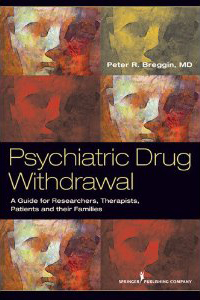
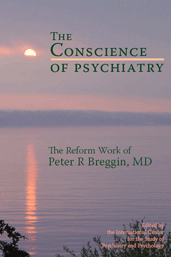
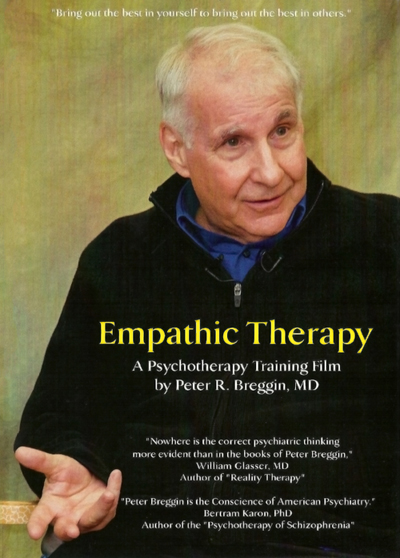
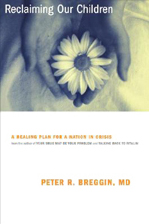
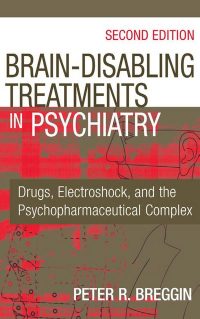
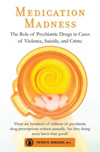
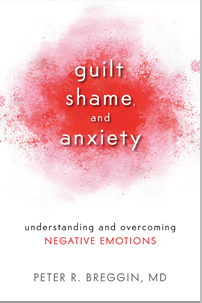
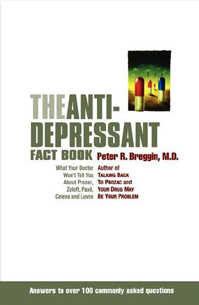
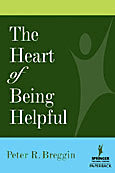
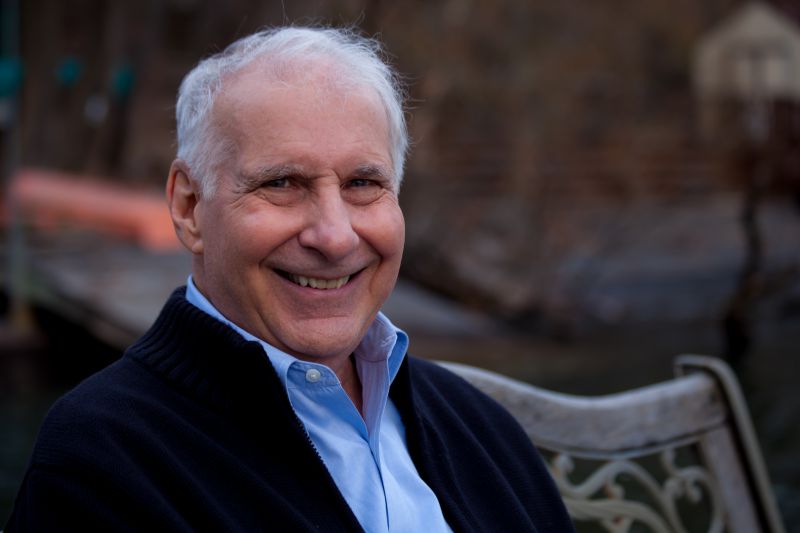 Psychiatric Reform Accomplishments
Psychiatric Reform Accomplishments